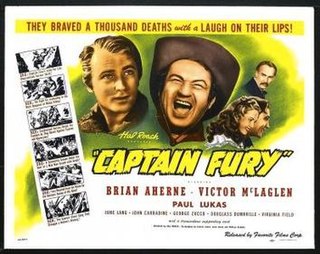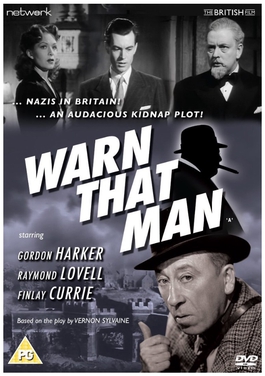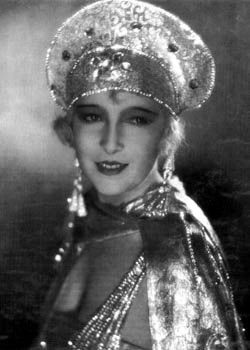
William Brian de Lacy Aherne was an English actor of stage, screen, radio and television, who enjoyed a long and varied career in Britain and the United States.
Anthony Harvey was an English filmmaker who began his career as a teenage actor, was a film editor in the 1950s and moved into directing in the mid-1960s. Harvey had fifteen film credits as an editor, and he directed thirteen films. The second film that Harvey directed, The Lion in Winter (1968), earned him a nomination for the Academy Award for Best Director. Harvey's career is also notable for his recurring work with a number of leading actors and directors including Terry-Thomas, Peter Sellers, Katharine Hepburn, Peter O'Toole, Richard Attenborough, Liv Ullman, Sam Waterston, Nick Nolte, the Boulting Brothers, Anthony Asquith, Bryan Forbes and Stanley Kubrick. He died in November 2017 at the age of 87.

Siege of the Saxons is a 1963 British adventure film directed by Nathan H. Juran and released by Columbia Pictures. Starring Janette Scott and Ronald Lewis, the film is set in the time of King Arthur, but, as with many Arthurian themed films, the sets and style are from medieval England. The plot is also heavily influenced by Robin Hood.

Cottage to Let is a 1941 British spy thriller film directed by Anthony Asquith starring Leslie Banks, Alastair Sim and John Mills. Filmed during the Second World War and set in Scotland during the war, its plot concerns Nazi spies trying to kidnap an inventor.

Fanny by Gaslight is a 1944 British drama film, directed by Anthony Asquith and produced by Gainsborough Pictures, set in the 1870s and adapted from a 1940 novel by Michael Sadleir.
Orders Is Orders is a 1933 British comedy film starring Charlotte Greenwood, James Gleason and Cyril Maude about an American film crew who move into a British army barracks to start making a film, much to the commander's horror. Much of the film concerns the interaction between the American crew and the British officers. It is based upon the 1932 play Orders Are Orders by Ian Hay and Anthony Armstrong. It was shot at the Lime Grove Studios in London with sets designed by the art director Alfred Junge.

Captain Fury is a 1939 American Western film directed by Hal Roach. It is set in colonial Australia as one of Hollywood's few attempts to depict Australian history.

Tell England is a 1931 British drama film directed by Anthony Asquith and Geoffrey Barkas and starring Fay Compton, Tony Bruce and Carl Harbord. It is based on the 1922 novel Tell England by Ernest Raymond which featured two young men joining the army, and taking part in the fighting at Gallipoli. Both directors had close memories of Gallipoli, as did Fay Compton's brother, Compton Mackenzie. Asquith's father H. H. Asquith had been Prime Minister at the time of the Gallipoli Landings, a fact which drew press attention to the film, while Barkas had fought at Suvla Bay in the Gallipoli campaign.

The Lucky Number is a 1933 British sports comedy film directed by Anthony Asquith and starring Clifford Mollison, Gordon Harker, Joan Wyndham and Frank Pettingell. The screenplay concerns a professional footballer who attempts to recover a winning pools ticket. The film was made by Gainsborough Pictures and shot at Islington and Welwyn Studios with sets designed by Alex Vetchinsky. The football scenes were filmed in and around Highbury Stadium in North London.

Underground is a 1928 British sound drama film directed by Anthony Asquith and starring Brian Aherne, Elissa Landi, Cyril McLaglen, and Norah Baring. While the film has no audible dialogue, it was released with a synchronized musical score with sound effects using both the sound-on-disc and sound-on-film process. The film examines the lives of ordinary Londoners and the romance between them, set on and around the London Underground.

Quiet Wedding is a 1941 British romantic comedy film directed by Anthony Asquith and starring Margaret Lockwood, Derek Farr and Marjorie Fielding. The screenplay was written by Terence Rattigan and Anatole de Grunwald based on the play Quiet Wedding by Esther McCracken. The film was remade in 1958 as Happy Is the Bride.

Nothing Barred is a 1961 British black and white comedy film directed by Darcy Conyers and starring Brian Rix, Leo Franklyn and Naunton Wayne.

Warn That Man is a 1943 British comedy thriller film directed by Lawrence Huntington and starring Gordon Harker, Raymond Lovell and Finlay Currie.

Morning Call is a 1957 British thriller film, directed by Arthur Crabtree and starring Greta Gynt and Ron Randell. It was written by Bill Luckwell and Paul Tabori from a story by Leo Townsend. It was distributed in the U.S. by Republic Pictures.

No Trace is a 1950 British second feature crime film directed by John Gilling and starring Hugh Sinclair, Dinah Sheridan and John Laurie. A crime writer murders a blackmailer, and is then asked to help solve the case by the police.

Annette Benson (1895–1965) was a British film actress. She was a leading lady of British silent films of the 1920s, appearing in Confetti with Jack Buchanan and Downhill with Ivor Novello. She also featured in several French and German productions in the mid-1920s. Her career tailed-off with the arrival of sound film and she made her last screen appearance in 1931.
Walter Percy Day O.B.E. (1878–1965) was a British painter best remembered for his work as a matte artist and special effects technician in the film industry. Professional names include W. Percy Day; Percy Day; "Pop" or "Poppa" Day, owing to his collaboration with sons Arthur George Day (1909–1952) draughtsman, Thomas Sydney Day (1912–1985), stills photographer and cameraman, and stepson, Peter Ellenshaw, who also worked in this field.

The Inseparables is a 1929 British silent romance film directed by Adelqui Migliar and John Stafford and starring Elissa Landi, Patrick Aherne and Annette Benson. It was filmed at the Whitehall Studios at Elstree.

Danger by My Side, also known as Danger on My Side, is a 1963 British second feature crime thriller directed by Charles Saunders and starring Anthony Oliver, Maureen Connell and Alan Tilvern.

101 Dalmatians is an American media franchise owned by The Walt Disney Company and based on Dodie Smith's 1956 novel The Hundred and One Dalmatians. It began in 1961 with the release of the traditionally animated feature film, One Hundred and One Dalmatians. Various adaptations produced from Disney have been released over the years.

















